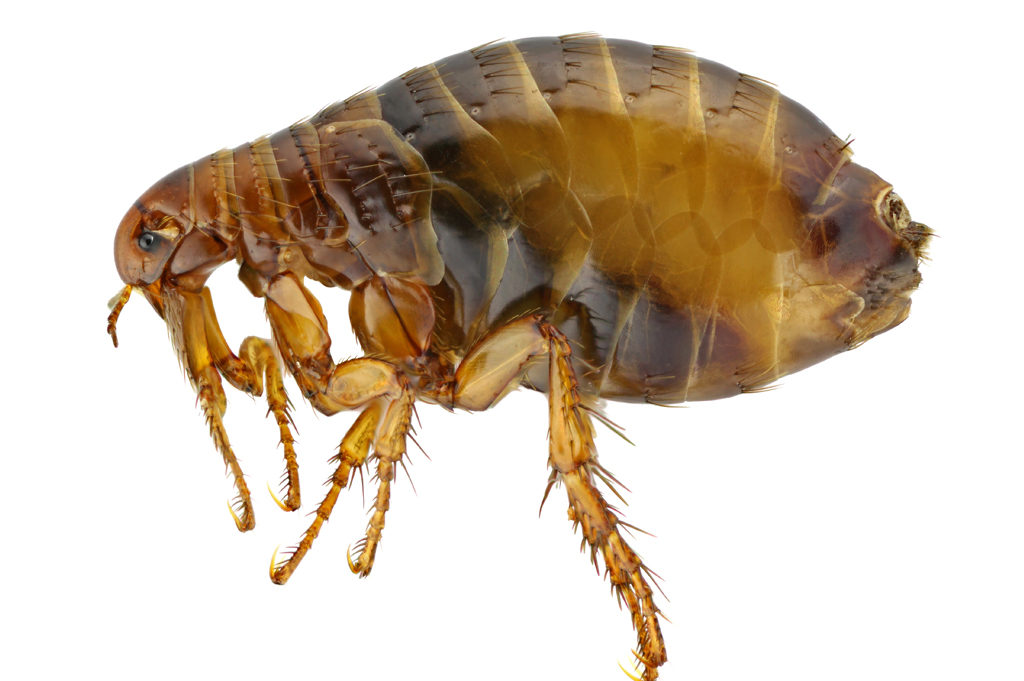
Fleas: Quick Facts
• Most prevalent parasite found on fur-bearing animals
• Approximately 300 species of fleas can be found in the United States (more than 2,000 species worldwide)
• The cat flea (Ctenocephalides felis) is the most common domestic flea.
What does a Flea look like?
• Fleas are small, wingless, flat insects with three pairs of legs
• Adult fleas are about 1/8" long (1 to 3 mm)
• They are dark reddish-brown in color and have biting mouthparts
What do Fleas eat?
• Fleas feed on any warm-blooded animal, including humans
• They prefer to dine on hairy animals such as dogs, cats, rabbits, rats, mice, opossums, raccoons & skunks
Where do they live?
• On a host body. Once a flea hatches and becomes an adult, it uses its powerful legs to jump onto a host, where it likely remains at all times. While attached, the flea will feed, mate and lay eggs.
• The eggs often fall off of the host and can be found in the yard, bedding, carpeting or blankets.
Are they dangerous?
• Yes. Flea bites can not only be uncomfortable, they can also carry diseases such as bubonic plague. While there are few cases reported today, this disease killed about one-third of the population of Europe during the 14th century. Additionally, they can spread the bacterial disease murine typhus, which is transmitted to humans through infected rats
• When it comes to pets, fleas can also serve as an intermediate host for tapeworm.
• Additionally, the saliva of fleas is known to cause serious allergy dermatitis in dogs and cats.
How can I prevent a Flea infestation?
• Maintain a clean home. Practicing basic good housekeeping skills is key to avoiding an infestation.
• Vacuuming carpets, floors and furniture frequently, along with regularly washing of bed linens will help remove any existing fleas and help prevent the laying of new eggs.
• Since fleas are often carried by rodents, it is important to eliminate any places that might entice rodents to build a nest. This can be done by keeping the lawn properly landscaped – mowing the lawn on a regular basis, replacing loose mortar and weather stripping around the basement foundation and windows, and removing all moisture sites around the property.
Pet Care
• Check all pets regularly and thoroughly for fleas, especially after spending time outdoors. Be on the look out for excessive scratching and licking.
• Bathe pets immediately after outdoor walks or playtime with other animals.
• Wash all pet bedding, collars and plush toys frequently.
• Speak to your veterinarian about flea prevention treatments.
How do I get rid of them?
• Fleas reproduce quickly – a single flea can produce as many as 400 to 500 offspring in their lifetime. This makes controlling a flea infestation very difficult.
• Your Vet can recommend the best methods and products for treating fleas on your pet.
• Fleas in your home are best controlled and eliminated by a licensed pest control specialist. Please call DKS Pest Control at (724) 478-5344.
